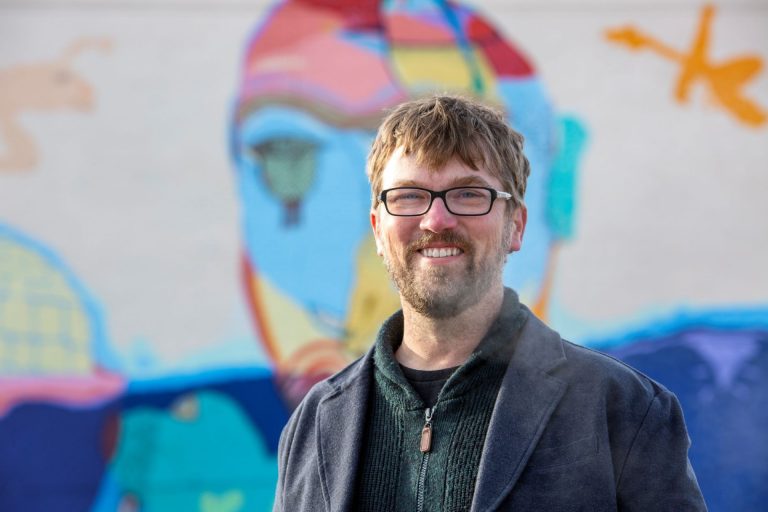The medieval Far North needs Indigenous perspectives, argues Concordia researcher

Historical study of the global Far North has long revolved around the 13th-century Vinland Sagas. These epic poems chronicled early attempts by Norse sailors to explore and settle modern Canada’s east coast. Rich in detail and lore, the sagas largely form the basis of the scholarly understanding of the era. But they also present very one-sided depictions of the Indigenous people who lived in the region at the time.
Stephen Yeager, an associate professor of English in the Faculty of Arts and Science, is trying to correct that. As a medievalist, he is aware of the glaring holes his field has regarding Indigenous North Americans.
In a new paper published in a special issue of English Language Notes edited by Tarren Andrews and Tiffany Beechy, both of the University of Colorado, Boulder, Yeager outlines a two-point plan to promote the Indigenization of medieval studies. The first element is the creation of an area of research inquiry he calls “The Global Far North, 500-1500 CE,” which aims to privilege non-written evidence from that period. The second element argues that modern and future scholars must prioritize interaction with and service to Indigenous communities over academic publishing as professional goals.
“This is about trying to push back against the idea that, as a settler, I can just come in, read the sources, publish something about them and get professionally rewarded for it,” he says. “None of that actually addresses any of the structures of continued harm.”
Evidence beyond the sagas
The paucity of written records has long been a challenge to researchers interested in the Far North. However, this very reliance on such records indicates a fundamental problem, according to Yeager.
“Written evidence is not the only evidence we have of the past. But prioritizing it as the most important kind is foundational to the settler mentality,” he says. “Fields like anthropology and sociology and other social sciences that are not so concerned with written texts tend to be sidelined in medieval studies, which is very literature-focused. We need to engage more with those disciplines.”
This approach requires a deeper engagement with Indigenous knowledge and epistemologies, Yeager believes, including Indigenous oral traditions. They must be coupled with fields like paleopathology, the study of ancient diseases, which can be enormously useful when tracking the movements of people and goods in the past.
Context old and new
To enact these ambitious changes, new networks of like-minded researchers need to be created, and clear ethics protocols need to be followed when engaging with Indigenous communities and their human remains. Yeager notes his Concordia colleague Jessica Bardill, assistant professor of English, has been a leading voice in advocating for the inclusion of Indigenous communities in discussions about genetic research on ancient remains.
But even more fundamentally, according to Yeager, is the need to prioritize Indigenous scholars, students and artists and for settler academics to take a step back when it comes to research.
“I see my role as being able to draw upon institutional clout and the established apparatus of my field in order to promote Indigenous intellectual life,” he says. “That can involve listening to and learning from the wisdom of Indigenous people and trying to incorporate that into scholarly practice.”
Lastly, it may be a useful way to reinvigorate a field that finds itself imperiled by an ongoing and highly toxic attempt at appropriation by white supremacists.
“There is a lot of amateur interest in the research we as medievalists do among people who seek the mythical origins of whiteness,” he says. “The way forward is to contextualize texts like the Vinland Sagas because that undermines those myths.
“At the same time, as a Concordia faculty member, I am serving a community that includes Indigenous students and I am not so far geographically from the topic of study. It seems important to find these connections and ways of promoting the research that increases our understanding of them.”
Read the cited paper: “The Global Far North: Planning Indigenization Efforts in Medieval Studies.”


